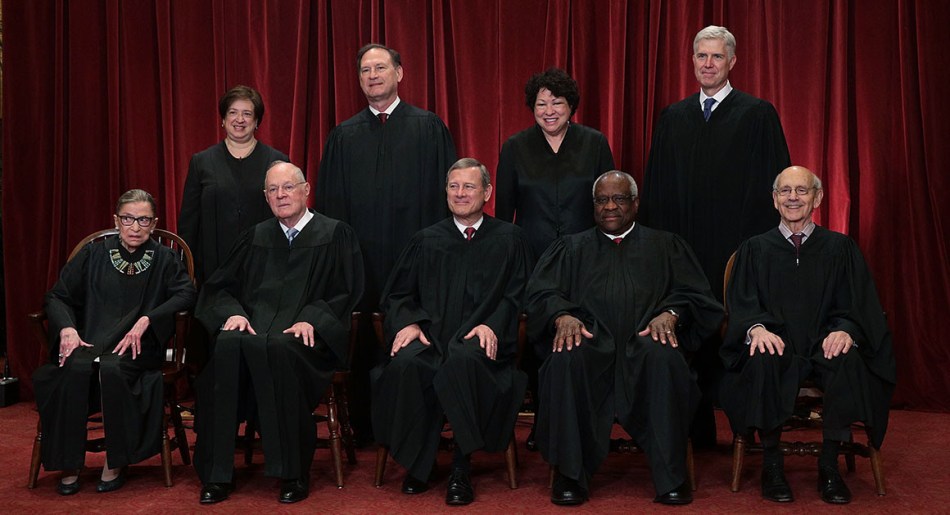The Activist History Review invites proposals for our June 2018 issue, “Meet the Supremes: Law and the Courts.”
Late spring is a conspicuous season for the U.S. Supreme Court. After months of hearing cases, the court convenes in May and June only to announce orders and opinions. It is for this reason that so many recent milestone decisions have overlapped with the end of the academic year and start of summer. There was Obergefell v. Hodges in 2015, which expanded marriage equality to all fifty states. 2016’s Fisher v. University of Texas determined that the consideration of race as a factor in college admissions does not violate the Fourteenth Amendment’s Equal Protection Clause. And just last year, the court ruled in Matal v. Tam that a federal ban on the registration of potentially disparaging trademarks was unconstitutional.
While these three cases all had progressive outcomes, there were—perhaps unsurprisingly—less than progressive consequences. Kim Davis, the Kentucky clerk of court, for example, strode into the national spotlight after refusing to issue a marriage license to a same-sex couple. The preservation of race-conscious admissions protocols all but ensured that individuals would continue to stigmatize young people of color who matriculate to prestigious institutions. And as much as the Matal v. Tam decision was a victory for the all-Asian rock band, The Slants, it also allowed Washington D.C.’s professional football team to keep profiting from its ownership of a racial slur.

Clearly the nation’s highest court has tremendous power to shape the future of the United States. But it did not start out this way. The U.S. Constitution famously has little to say about the judicial branch. Instead, the court system has evolved over time, its influence ebbing and flowing. Who could forget, for example, Marbury v. Madison, the 1803 case in which the Supreme Court declared its authority of judicial review?
The Activist History Review invites proposals that address the development of the court system or its impact. Special consideration will be given to essays that consider how everyday people have interacted with—and been affected by—local, state, and federal courts.
Potential topics include, but are not limited to:
- Judicial federalism and drug enforcement
- Activist jurisprudence
- Rulings and racial disparities
- Constitutional originalism
- Judiciary elections and appointments
- Nullification
- Trials as theater
- Courts as symbolic sites
Proposals should be no more than 250 words for articles from 1250-2000 words, and should be emailed to William Horne at horne(dot)activisthistory(at)gmail(dot)com by Saturday, May 19th at 11:59 PM. Please also include a short bio of no more than 100 words.


0 comments on “Call for Contributors for June 2018 Issue, “Meet the Supremes: Law and the Courts””